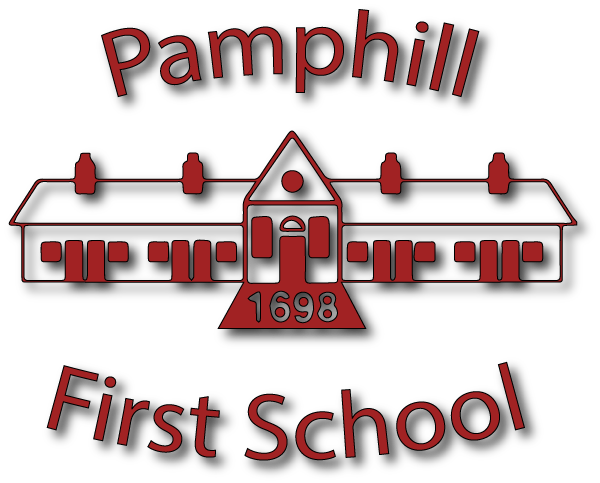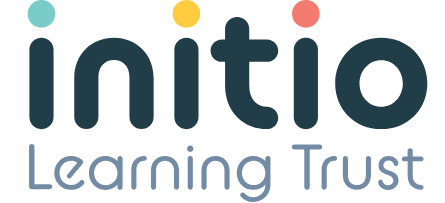Curriculum
The Curriculum at Pamphill First School
"Shine like stars as you hold onto the word of life."
At Pamphill First school, we believe that we are all lifelong learners. Through our teaching we equip children with the skills, knowledge and understanding necessary to be able to grow, develop and lead happy and rewarding lives now and in the future.
We want our curriculum to enable children to leave us with a rich and detailed understanding of the world and their place within it. We want them to develop a sense of ownership and belonging in the world, which they can contribute to.
What do we want our children to learn?
Our curriculum is designed to be knowledge-rich, high-reaching, inspiring and purposeful and is one that meets the needs of all pupils. It is designed to promote learning and personal growth and development. It includes not only the formal requirements of the National Curriculum and the statutory framework for the Early Years Foundation Stage, but also the additional elements that we provide to enrich their learning experiences.
The curriculum allows children to develop effective interpersonal skills, build resilience and become creative, critical thinkers. It provides opportunities for children to develop as confident and successful learners, with high aspirations and a sense of personal responsibility. Our PAMPHILL behaviours for learning (which you can find out about here) underpin all that we do in school, fostering curiosity and resilience. We have high expectations in speech, language and communication to strengthen children’s ability to learn at a deeper level, allowing them to articulate their learning; demonstrate quality thinking and application of skills and knowledge.
Physical and mental wellbeing are prioritised within our curriculum allowing children opportunities to develop their spiritual, moral, social and cultural understanding, thus preparing them to make a positive contribution to their community and the wider society. Every child is recognised as a unique individual, and we celebrate and welcome differences within our school community.
Our curriculum enables teachers to be ambitious for our learners, and together we ensure that they are well-prepared for the next stage in their educational journey and can build their future. The curriculum is cohesive and progressive, where both knowledge and skills are built upon year-on-year. We provide an engaging learning experience for all our pupils and believe that childhood should be a happy, investigative and enquiring time in our lives.
How do we facilitate their learning?
The curriculum covers the statutory requirements of the National Curriculum and other experiences and opportunities which best meet the learning and developmental needs of the children in our school, allowing them to flourish. Our curriculum is one where knowledge is built over time, and where children develop their understanding of concepts through the inter-connection of ideas and skills. The curriculum provides children with memorable experiences and opportunities from which they can learn, develop and apply a range of transferable skills.
The curriculum exposes the children to the key concepts of democracy, rule of law, individual liberty, mutual respect and tolerance of those with different faiths and beliefs - while maintaining the school's Christian ethos. It is constructed with deliberate layering of cumulative knowledge as the children progress through the school, with past learning revisited in order to build their understanding.
The curriculum has high expectations to combine transferable skills, demonstrate a breadth of vocabulary and develop strong, meaningful cross-curricular links. Inviting classroom environments stimulate learners and engage them in quality thinking and reasoning.
The school takes pride in providing a highly inclusive environment, where learners of all abilities demonstrate high levels of enjoyment in their education and most make very good progress in most subjects and areas of learning. Children at all levels are helped to achieve their potential. Those who are most able are challenged and supported through being offered tasks which provide opportunities for greater depth and those who present with a barrier to learning are encouraged and given targeted support to embed skills, to develop at their own pace or simply to learn in a style that best suits their individual needs.
What difference does learning at Pamphill make?
Our children are well-prepared for each stage of their learning journey. The curriculum design provides a structured path for children to develop their knowledge and understanding over time, connecting ideas and taking opportunities to develop their own thoughts and ideas about the world they live in, and to see the world in a new way. The curriculum enables the children to question and challenge ideas, to voice their thoughts and opinions in an articulate way and to participate confidently in discussion.
Enjoyment of the curriculum promotes achievement, self-confidence and good behaviour. Children feel safe to try new things and present excellent behaviour for learning. High quality visits and visitors to the school enhance the curriculum and provide opportunities for broadening horizons. Our incredible school environment enriches our learning experiences.
The needs of individual and small groups of children can be met within the environment of Quality First teaching, supported by targeted, proven interventions where appropriate. In this way it can be seen to impact positively on children’s outcomes.
Reading at Pamphill First School
We are passionate about reading at Pamphill First School. Throughout the school, a love for reading is nurtured through our use of the Unlocking letters and Sounds Reading scheme, whereby high quality texts are used to develop language and writing skills, alongside reading skills. Children are provided with opportunities to develop their reading skills in directed Guided Reading and Whole Class Reading sessions, as well as using opportunities across other curriculum areas - the class texts we use to inspire learning across the curriculum are particularly special to our pupils. Our wonderful school library is visited each week by all classes for all children to take home a high quality book they have chosen and would love to enjoy.
At Pamphill First School we promote a 'phonics first' approach and in: our whole class reading sessions; our guided reading sessions; and in the books children take home. Independent reading texts are very closely matched to a child's current phonics knowledge so that every child can experience real success in their reading. In these crucial early stages of reading we primarily use books from Ransom Reading Stars Phonics to ensure complete fidelity to the Unlocking Letters and Sounds progression we follow.
Reading in Year 3 and 4 is taught through whole class reading lessons teaching specific reading skills; allowing pupils to access extracts of high quality texts and teaching all pupils to analyse the text in greater depth. Children are encouraged to develop as independent readers, discovering favourite authors amongst the well-stocked shelves across the school.
Phonics Scheme
We use Unlocking Letters and Sounds which was validated by the DfE in December 2021.
We begin teaching phonics in the first few weeks of term 1 in Reception and children make rapid progress in their reading journey. Children begin to learn the main sounds heard in the English Language and how they can be represented, as well as learning ‘Common Exception’ words for Phases 2, 3 and 4. They use these sounds to read and write simple words, captions and sentences. Children leave Reception being able to apply the phonemes taught within Phase 2, 3 and 4. At the bottom of this page you can find a document that describes all the actions, images and letter formation that we use to help the children to retain their learning.
In Year 1 through Phase 5a, b and c, they learn any alternative spellings and pronunciations for the graphemes and additional Common Exception Words. By the end of Year 1 children will have mastered using phonics to decode and blend when reading and segment when spelling. In Year 1 all children are screened using the national Phonics Screening Check.
In Year 2, phonics continues to be revisited to ensure mastery of the phonetic code and any child who does not meet age related expectations will continue to receive support to close identified gaps. For further details please see the Unlocking Letters and Sounds progression attachment at the bottom of the page.
To ensure no child is left behind at any point in the progression, children are regularly assessed and supported to keep up through bespoke 1-1 interventions. These include GPC recognition and blending and segmenting interventions. The lowest attaining 20% of pupils are closely monitored to ensure these interventions have an impact.
You can find more details about the Unlocking Letters and Sounds scheme in the attachments at the bottom of this page.
Writing at Pamphill First School
Pupils will have the chance to write in a variety of genres for a range of purposes and audiences during their time at Pamphill. We link their writing to our topics and use high-quality texts to inspire their thinking. Discrete grammar and spelling lessons are taught in every class to enable continued progress. Pupils apply their learning independently, often with an element of choice. For example, writing from the perspective of a chosen character. Following both personal and general whole class feedback or discussion, pupils are encouraged to edit their writing.
Maths at Pamphill First School
Our progression of learning starts in Reception and builds beyond. We use a mastery approach to teaching mathematics using resources from NCETM mastering Number, White -Rose and Maths No-Problem. This approach is based upon research from Bruner (Concrete, Pictorial, Abstract approach), Vygotsky (rich discussion & peer talk), Piaget (thinking processes rather than outcomes), Dienes (exploration before structure and a variety of methods) and Skemp (making links). Each topic is studied in depth and the teacher does not move to the next stage until all children demonstrate that they have a secure understanding of mathematical concepts.
Pupils are given time to think deeply about maths and really understand concepts at a relational level rather than as a set of rules or procedures. This inclusive approach, and its emphasis on promoting multiple methods of solving a problem, builds self-confidence and resilience.
Pupil Voice
Pupil voice is fundamentally important in all the decisions made regarding life at Pamphill. At least once a half term we hold pupil voice sessions that enable the children to be part of real change while learning about the British values. There are also a whole host of roles and responsibilities that children can hold in the school including: Eco-ninjas, Worship Leaders and Play Leaders on top of an array of roles within the classroom. It is our intention that every pupil gets a chance to hold a position of responsibility during their life at the school on top of their half-termly contributions. We want to make all our pupils active participants in daily school life. Pupils also take part in partnership work with other schools in Wimborne Academy Trust and beyond and various events with our community such as supporting Wimborne Food Bank and Wimborne War on Waste. Whole school questionnaires and subject specific pupil voice also inform decisions regarding our school and community.
EYFS (Reception Year)
In EYFS, while all children should have a programme that involves good amounts of play, child initiation and independence, it is also vital that they have a healthy diet of adult-led sessions, guided support and independent opportunities to read, write and solve problems. Our Reception pupils develop as confident, courageous and capable readers, writers and problem-solvers. We are able to provide a strong foundation enabling pupils to thrive as they enter Year 1 and throughout the rest of their lives. Our learning environment both in the classroom and through forest school activities ensure our Early Years is fun, creative, energetic and balanced. We also work closely with our preschool to provide pupils with a smooth transition into school.
Curriculum Overviews
Curriculum Overviews can be found on the classes page - please click here
Curriculum Queries
If you have any questions regarding the school curriculum, please email the school office marking the subject 'curriculum query' and we will respond to you.

